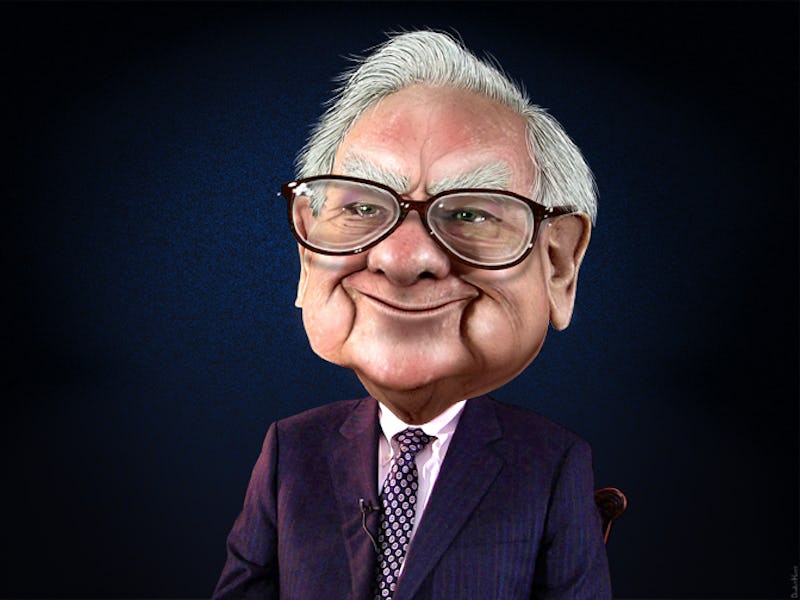How to Make Mistakes Like the World's Most Successful Billionaires
There's a science to learning from mistakes.

We may get better at making mistakes as we age. One 2015 study found that a group of 70 year-olds were much more adept than their twenty-something counterparts at remembering and correcting general knowledge errors on a surprise retest. So much for old dogs, new tricks.
It’s a little comforting to think that we’ll be better at bouncing back when we’re older. That suggests that dropping the ball is something that will get less painful over time as we get better at not just fixing our mistakes, but anticipating and preventing them. In fact, the roots of our failures — at least when it comes to money — probably have more to do with our emotions and feelings they they do with our knowledge and skills.
Indeed, the vast majority of investing’s biggest blunders — from the guys who bet on housing before the housing crash to the guys who bet on tech before the dotcom crash — were behavioral, not analytical, Michael Batnick, director of research at Ritholtz Wealth Management and author of the new book Big Mistakes: The Best Investors and Their Worst Investments tells Inverse.
“One of the amazing things about investing is you get affirmation of every minute of every day … you see prices update all the time,” Batnick said. “That is just a petri dish of behavioral mistakes that can go wrong.”
Whether we passed on bitcoin when it was cheap, or whether we bought in when bitcoin was too expensive, we all make some terrible calls.
Like what, exactly? The most common theme is the failure to process regrets in a healthy manner. He points to a guy named Stanley Druckenmiller — a business partner of the famous anonymous protest benefactor George Soros — and his decision to start buying tech stocks at the end of the dotcom boom. The way Batnick tells it, Druckenmiller lost billions doubling down, mostly out of his regret over missing out on the good times. He contrasts this approach against that of Chris Sacca, the venture capitalist who amiably talks about how he said no to phenomenal investment opportunities with Snap, Airbnb, AND Drobox.
“Regret is one of the most pernicious things about investing because it poisons the brain,” Batnick said. “You’re not going to bat 1000%. Knowing that is one of the things that separates the way these guys make mistakes from the rest of us. They take mistakes in stride. They learn about them, they know you’re going to make the same mistakes over and over again. These people don’t let mistakes develop into scar tissue.”
We can’t all have a billionaire’s ego to help us avoid sweating the small stuff, but the science suggests there are plenty of ways normal people can get better at bouncing back and striving on. Here are three tips.
Warren Buffett is as much a folk hero as he is a CEO of the conglomerate Berkshire Hathaway.
1. Match Tools With Your Behavior
The key predictors of investment losses are over-confidence and under-confidence, otherwise known as loss aversion. We do ourselves in by being too cocky to take our chips off the table (like Druckenmiller), or by being too afraid to roll the dice at the right moment (like Sacca.) Of course, figuring out this Goldilocks -esque formula is a little easier said than done. To Batnick, the most useful tools for achieving this are these things called target date funds. They’re basically a basket of investments that are designed to automatically get a little bit less risky year by year as you age, about as close as it comes to a one-size-fits all investing approach.
2. Let Yourself Feel a Little Pain
Mistakes are helpful in the long run when we learn from them. In fact, some research has suggested that we learn better when we make a few mistakes a long the way. And while it’s certainly not good to dwell on our mistakes in the way that Batnick describes, it’s also likely that mistakes play a key role in helping us learn and persevere in the future, according to another more recent study from researchers at The Ohio State University. That study found that people who processed their mistakes in a more emotional fashion by reflecting on them in writing were actually more likely to succeed and persevere in the future.
Their theory is that we may experience feelings like shame for a reason, and that reason is to help us be better in the future. To get the most out your mistakes, consider talking about how these mistakes made you feel with a friendly face, or better yet writing them down in a journal.
3. Write About Your Values
Self-affirmation exercises are another thing to consider if you’re looking to have a healthier relationship with failure. People who are conditioned to feel self-affirmed tend to perform better by reducing the feelings of defensiveness or stress that come from dropping the ball. That’s according to one 2012 study published in Psychological Science. Those researchers found that a test group asked to rank six different values — aesthetic, economic, social, religious, political, theoretical — and then write about the value that was most important to them outperformed on a task designed to test for focus. The theory is that people who know themselves better are more receptive to what can be learned from their mistakes.
So the next time your boss tears you a new one, think about what kind of processes you can institute to address the problem as opposed to simply sucking up or asking forgiveness. It also won’t hurt to find a friendly face to vent to, or write down some thoughts about what you value in life and why. Then let us know how it goes.